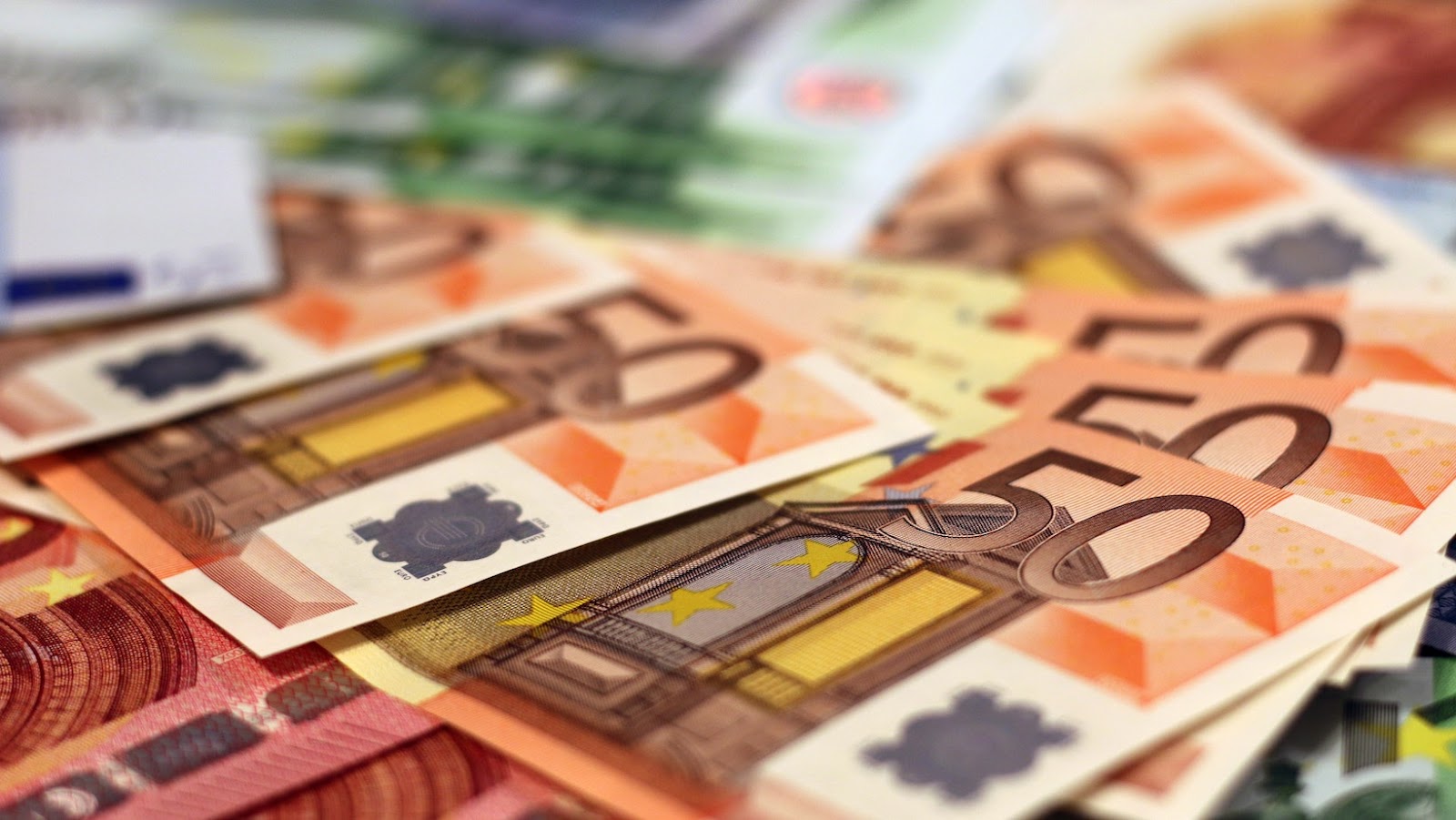Exchange rates refer to the value of one currency compared to another. Various factors impact exchange rates, including economic, political, and social factors. Some of the crucial factors affecting exchange rates are as follows:
1) Interest rates: Countries with higher interest rates generally have stronger currencies than countries with lower interest rates.
2) Inflation rates: Countries that experience lower inflation rates typically have stronger currencies.
3) Political stability: Political uncertainty, instability, or changes in government can lead to currency fluctuations or devaluation.
4) Economic indicators: Economic indicators such as gross domestic product (GDP) growth, employment rate, and trade balances impact exchange rates.
5) Government debt: Countries with high debt levels can see their currencies devalued.
All these factors impact the currency exchange rate in the markets. Therefore, keeping track of these factors while exchanging currencies is critical.
Economic Factors
A variety of economic factors influences exchange rates. In this section, we’ll look at how economic factors such as inflation, economic growth, and interest rates can affect exchange rates. We’ll also discuss how government policies and political events influence exchange rates.
Let’s dive into the details.
Interest Rate Differentials
Interest rate differentials play a significant role in determining exchange rates between two countries.
When there is a difference in interest rates between two currencies, investors and traders flock towards the currency with higher interest rates, increasing demand and appreciation of that currency. On the other hand, lower interest rates in a currency typically weaken that currency due to lower demand.
For example, suppose country A has higher interest rates than country B. In that case, investors are likely to invest in country A’s currencies, causing an increase in demand and subsequently appreciating the value of country A’s currency. This concept applies to currency exchange rates in the foreign exchange market, causing fluctuations in the exchange rate.
Understanding interest rate differentials and their impact on currency exchange rates is critical for investors and traders.
Inflation
Inflation is a common economic factor that can significantly affect exchange rates. Inflation is the overall increase in prices of goods and services in an economy over a certain period. When inflation rates rise, the value of a country’s currency decreases relative to other currencies as the purchasing power of the currency declines. This can lead to decreased demand for the currency in international markets, causing it to devalue further.
Countries that experience high inflation rates are often seen as less attractive to foreign investors, who may prioritize investing in countries with more stable currencies. As a result, some countries may implement measures to control inflation such as monetary policy, interest rate adjustments, or economic reforms to combat this issue.
Pro Tip: As an investor or business owner, it’s important to keep track of inflation rates in different countries as they can significantly impact the value of your investments or business operations.
GDP Growth
GDP growth is one of the major economic factors that can significantly impact a country’s exchange rates.
When a country’s GDP grows, the economy is thriving, leading to increased production and consumption. This can lead to an increase in the demand for the country’s currency, strengthening the exchange rate.
On the other hand, if a country’s GDP is shrinking, it can lead to a decrease in demand for the country’s currency, weakening the exchange rate.
Economic factors affecting exchange rates include inflation rates, interest rates, government debt, and political stability.
It’s important to keep an eye on these factors when exchanging currency to maximize the exchange rate you receive.
Pro tip: Stay up-to-date with economic news and forecasts to make informed currency exchange decisions.

Political Factors
Political factors can have a direct and indirect impact on exchange rates. For example, exchange rate policies and regulations imposed by governments, as well as political uncertainty, can all affect exchange rates.
This section will examine the political influences that may impact the exchange rate.
Government Stability
Government Stability is one of the most significant political factors that affect a country’s exchange rate. Political stability and continuity have a direct impact on a country’s economy and its monetary policy. A government that maintains stability in its political climate and the country’s economic growth creates an environment more attractive to foreign investors. This, in turn, leads to an increase in the demand for the country’s currency, increasing in its value relative to other currencies.
However, a government that fluctuates or cannot maintain stability in its political environment can cause uncertainty in the country’s economic prospects, leading to a decrease in demand for the country’s currency, resulting in its value relative to other currencies.
Hence, keeping an eye on a country’s political climate and stability is essential as it plays a vital role in determining its currency’s value in the foreign exchange market.
International Relations
International relations play a significant role in shaping political factors that affect exchange rates. In addition, various internal and external factors including political stability, monetary policies, economic growth, and market speculation determine the exchange rate of a country’s currency.
Political factors such as government stability, political turmoil, and policy changes can immediately impact exchange rates. For example, when there is political instability, the value of a country’s currency may depreciate as investors lose confidence in its ability to maintain economic stability. In contrast, when a government is stable, its currency is more likely to hold its value.
Moreover, political relationships between countries also play a major role in currency exchange rates. For instance, a trade partnership between countries can affect their respective currencies’ value. If the trade is fair and balanced, both countries’ currencies will gain strength, but if the trade is deemed unfair, it could lead to economic sanctions and devaluation of currencies.
Therefore, it is essential to consider global political situations and governmental policies when making decisions related to foreign exchange.
Political Risk
Political risk is associated with political factors and government policies that may affect the stability and profitability of investments in a specific country. This risk is a key factor affecting exchange rates and, as a result, the currency exchange rates in exchange offices today.
Some examples of political factors that can affect exchange rates and currency values include changes in government policies, economic sanctions, political instability and conflict, national elections, and changes in leadership or regime.
To mitigate political risk, investors often diversify their holdings by investing in multiple currencies or countries with different political systems and economic conditions. Additionally, investors can stay informed with the latest political developments and policy changes to make informed investment decisions.

курс валют в обмінниках на сьогодні
Exchange rates can be affected by market psychology, which a variety of internal and external factors can influence.
Market psychology is the collective behavior of participants in the financial markets, and it can have a major impact on the movement of exchange rates. In this section, we will discuss some factors that can influence market psychology and, in turn, affect the exchange rate.
Market Sentiment
Market sentiment refers to the overall attitude or mood of investors and traders towards a particular financial market, such as the foreign exchange market. It plays a crucial role in determining the direction of exchange rates in the short term.
Many factors influence market sentiment and ultimately affect exchange rates, including political and economic events, interest rates, inflation rates, and market speculation.
For example, if there is a sudden shift in market sentiment due to a negative economic report, such as a drop in GDP, the value of the country’s currency may decrease. Conversely, positive news, such as a bumper crop or increasing exports, can stimulate demand for that country’s currency and increase its value.
As market sentiment is constantly changing, forex traders must stay up-to-date with the latest economic and political developments to make informed trading decisions.
Pro tip: Monitor major news events and indicators closely to gauge market sentiment and adjust your trading strategy accordingly.
Speculation
Speculation plays a significant role in influencing the exchange rates of currencies in the foreign exchange market. Traders and investors speculate based on numerous factors, including global events, economic indicators, and geopolitical developments.
Speculative trading of currencies can create significant price swings in a short amount of time, leading to fluctuations in exchange rates. Moreover, speculation can cause currencies to overvalue or undervalue, leading to inefficiencies.
Factors affecting exchange rates include inflation rates, interest rates, political stability, economic growth or recession, and trade balances. Traders and investors speculate on these factors based on available information and future expectations, which can lead to market price movements.
Pro Tip: It’s essential to stay informed about global economic developments and their potential impact on currency exchange rates if you’re a trader or investor in the foreign exchange market. Understanding these factors can help you make more informed decisions while minimizing risk exposure.
Investor Confidence
Investor confidence is a key factor affecting exchange rates, as market psychology plays a pivotal role in shaping how investors perceive and respond to economic events and trends.
When investors are confident about a country’s economic outlook, they are more likely to invest in its assets and buy its currency, which drives up the demand and value of the currency in the foreign exchange market.
On the other hand, if investors are uncertain about the prospects of a country’s economy, they may pull their investments out and sell the currency, decreasing its value relative to other currencies.
Other factors affecting exchange rates include inflation rates, interest rates, political stability, and trade balances.
As an investor, it is important to keep track of these factors and monitor market psychology to make informed decisions about currency trading.
Pro tip: Stay updated with the latest news and economic developments to gauge the market’s sentiment and make wise investment decisions.

International Trade Factors
Exchange rates are affected by complex international trade factors, from the relative size and strength of the two countries’ economies, to their respective political dynamics.
To make sense of the vast range of variables that can affect the exchange rate, it’s important to understand the basics of international trade and the economic and political climates of the countries involved.
Let’s take a look at some of the key factors that have an impact on foreign exchange rates.
Balance of Trade
The balance of trade is a key indicator of a country’s economic health and represents the difference between its exports and imports. When a country exports more than it imports, it has a trade surplus, while a trade deficit occurs when it imports more than it exports.
Factors affecting exchange rates play a crucial role in balancing trade. These factors include inflation rates, interest rates, political stability, and the stock market’s performance.
A country with high inflation is likely to experience a depreciating exchange rate, while higher interest rates attract foreign investment and lead to an appreciation of the currency. Political instability and poor stock market performance also negatively impact exchange rates.
To balance trade, countries can devalue their currency, making exports more affordable, or impose tariffs on imported goods, making them less attractive to consumers.
Pro Tip: Forex traders closely monitor factors affecting exchange rates to make informed trading decisions.
Foreign Investment
Foreign investment plays a vital role in determining a country’s exchange rates. Factors such as the stability of the government, economic growth rate, and interest rates can influence foreign investment.
Here are a few factors that affect exchange rates:
1. Interest rates: When interest rates are high, foreign investors are attracted to invest in a country, which can increase demand for the local currency, leading to appreciation in its value.
2. Economic stability: Economic instability or recession can decrease foreign investment, leading to a decrease in local currency demand, ultimately depreciating its value.
3. Political stability: A stable government can improve investor confidence, leading to an increase in foreign investment and an increase in local currency’s value.
4. Balance of trade: A country’s balance of trade, which is the difference between imports and exports, can also impact exchange rates. If a country imports more than it exports, it can lead to a decrease in demand for the local currency, decreasing its value.
Understanding the factors affecting exchange rates can help investors make informed decisions when investing in foreign currencies.
Pro tip: Keep updated with global economic and political situations to make better investment decisions.
Import and Export Regulations
Import and export regulations are the laws and procedures governing the movement of goods between countries. These regulations are put in place to protect domestic industries, ensure the safety and quality of imported products, and promote fair trade practices.
Factors affecting exchange rates play a crucial role in determining international trade regulations. Some significant factors affecting exchange rates include inflation, political stability, economic growth, and interest rates. These factors can directly affect the value of a country’s currency, which, in turn, impacts its import and export policies.
To ensure compliance with import and export regulations, it is essential to work with experienced trade consultants to navigate the complex requirements of global trade. These experts can help businesses optimize supply chain management, streamline logistics, and manage the complexities of international trade policies, including exchange rates.
Pro tip: Keep up-to-date with the latest import-export regulatory policies and currency exchange rates to make informed decisions for your business growth.
















